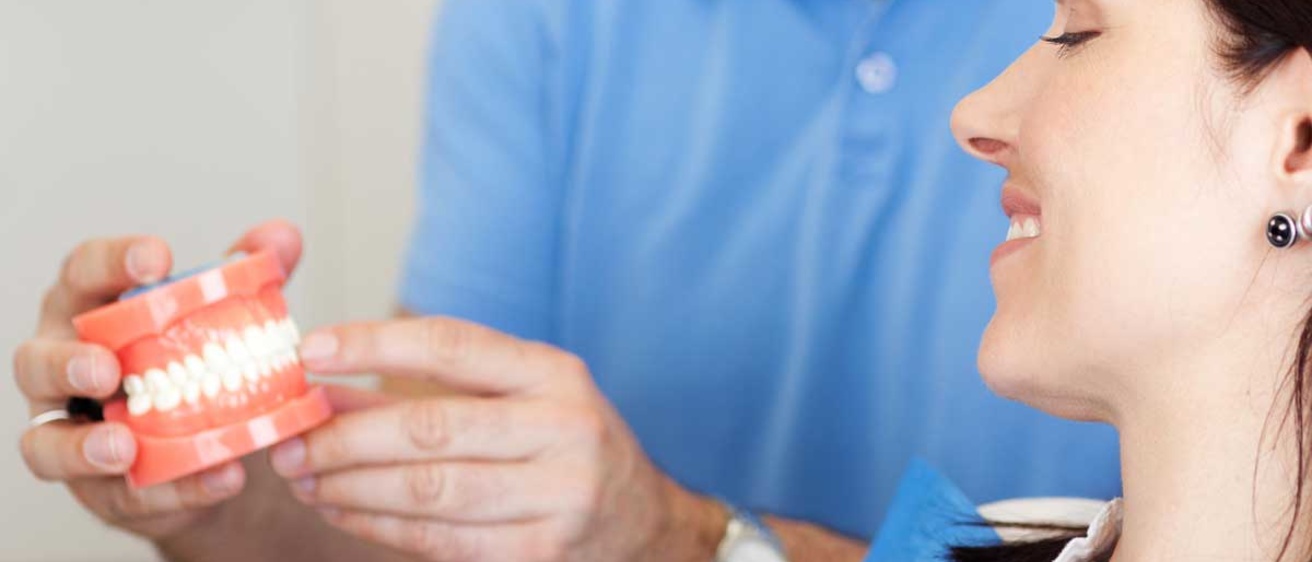Complete Dentures Information
Dentures should not be considered a replacement for teeth. They are a replacement for no teeth.
Some people have many difficulties with their natural teeth and believe that having them extracted and getting dentures will solve all their problems. You may know someone with dentures that fit perfectly and who won't have to worry about their teeth again, but many people have life-long problems with their dentures. The following information, concerning some of the challenges a person might face with the placement of dentures, may be helpful:
- Some of the difficulties and problems associated with wearing dentures include: difficulties with speaking and eating; food under dentures; function; loose dentures; lack of retention; need for adhesives; feeling of fullness; and poor ridge relationship (i.e. Class II), as well as the probable need for future relines and remakes.
- It is necessary for immediate dentures to be relined or remade, usually within six months. Because this is due to shrinkage of the gums, not problems with the way the dentures are made, the patient is usually responsible for paying for these procedures.
- Regular dentures started within six to eight weeks after tooth removal frequently need to be relined or remade before one year, due to continued bone resorption. This is especially true for patients with a history of periodontal (gum) disease or extensive ridge surgery. Because shrinkage from bone loss is unpredictable and varies for individuals, patients are usually charged for any laboratory relines or remakes. The advantages of waiting six to eight weeks are that a patient will have dentures to wear soon after tooth removal, relines or remakes are not always required, and there are frequently fewer post insertion adjustments compared to immediate dentures. These advantages allow for a lower fee than that charged for immediate dentures.
- However, a healing time of six months is preferable after tooth extraction before denture construction is started. Past experience has shown that patients who have dentures made six months after extraction have a good chance of not needing a reline or remake during the first year of wearing their new dentures. However, because of continued bone resorption, there is no guarantee that a reline or remake of the conventional denture will not be required.
- The average denture usually requires a laboratory reline or remake at least once in every four years, due to functional wear and/or continued bone resorption. This bone resorption will continue throughout the patient's lifetime, making subsequent denture construction more difficult, less satisfying, and less comfortable for the patient than their previous denture experience.
- Due to the varying rates of bone resorption and jaw alignment situations, there is no guarantee that a patient will successfully and comfortably wear even a well-constructed denture.
- Dentures should not be considered a replacement for teeth. They are a replacement for no teeth. Dentures are prosthetic appliances, not real teeth, made to imitate the function of teeth as closely as possible. However, most people end up with about 20% efficiency of their natural teeth.
